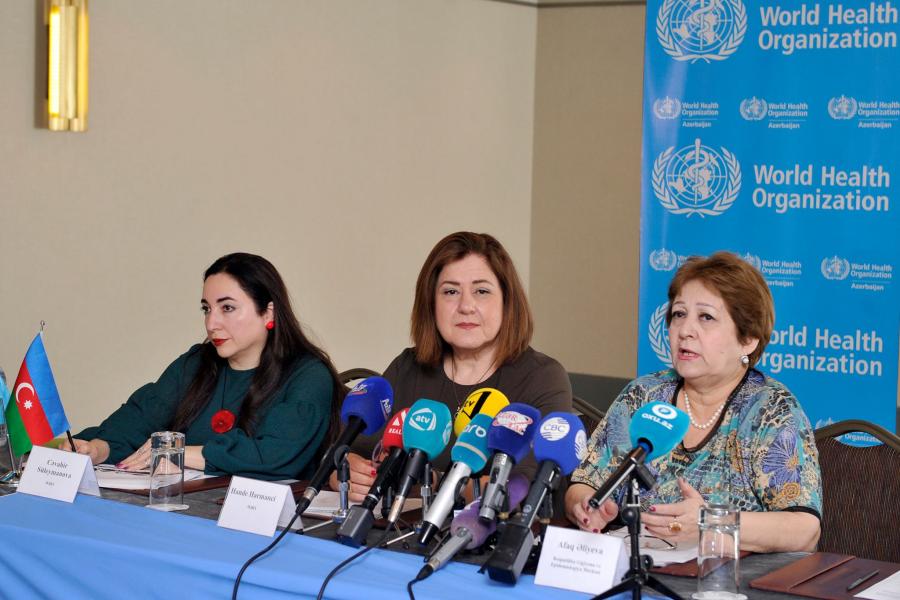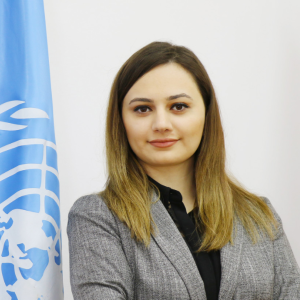WHO and Azerbaijan Ministry of Health hold press conference and roundtable discussion on European Immunization Week
24 April 2019
- The Country Office of the World Health Organization (WHO) in Azerbaijan and the Ministry of Health has held a press conference and a roundtable discussion for the European Immunization Week (EIW) to promote immunization as a vital intervention to preventing diseases and protecting life.

Representatives from the Ministry of Health, the Scientific Research Institute of Pediatrics, the Azerbaijan State Medical Doctors Improvement Institute, the Republican Centre for Hygiene and Epidemiology, the Centre for Public Health and Reforms, the Analytical Expertise Centre, the Ministry of Justice, the State Agency on Compulsory Medical Insurance, the Country Coordinating Commission on Healthcare Programmes and UN agencies attended the roundtable discussion.
This year, the purpose of the European Immunization Week, April 24-30, is to extend the vaccine coverage by raising the awareness of the benefits of vaccination. Since 2007, the Azerbaijani Ministry of Health every year joins WHO European Region in celebrating the EIW.
“Vaccines save millions of children from serious diseases and deaths every year. Let’s not forget that the reason we don’t see much of measles, rubella, whooping cough and similar diseases any more is thanks to the vaccines,” said Dr. Hande Harmanci, WHO Representative in Azerbaijan.
“If we don’t vaccinate our children, these diseases are around the corner, waiting to make a come-back. Remember that all the vaccines that the Ministry of Health provide in Azerbaijan are of good quality,” she emphasized.
Vaccination is a life-long investment in children’s health and well-being. Thanks to vaccines, most children and adults in the European Region are immune to measles, rubella, mumps, diphtheria, pertussis, tetanus and polio. An increasing number are also vaccinated against pneumococcal bacteria, human papillomavirus and hepatitis B virus to prevent the severe forms of disease they can cause. With an average of 90% coverage across the European Region, more children received the second dose of measles containing vaccine in 2017 than ever before. However, despite the progress already made in reducing the threat of vaccine-preventable diseases, too many people are still missing out on the protective benefits of vaccination. More effort is needed to ensure that immunization coverage gaps are closed and that no one is left behind.
In 2018, over 82 000 people suffered from measles and 72 died of related complications in the European Region. Gaps in immunization coverage are an open door for contagious vaccine-preventable diseases, allowing them to spread among those who are not vaccinated.
The European Vaccine Action Plan (2015-2020) envisions a European Region free of vaccine-preventable diseases, where countries provide equitable access to high-quality, safe, affordable vaccines and immunization services throughout the life course. Making this vision a reality is vital to achieving the 2030 Agenda for Sustainable Development, and in particular Goal 3 “to ensure healthy lives and promote well-being for all at all ages”.


